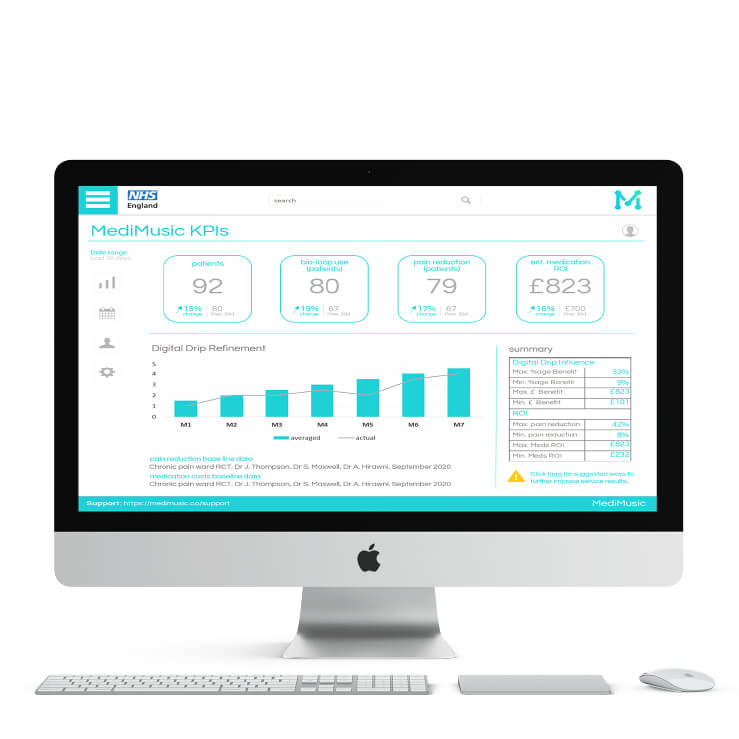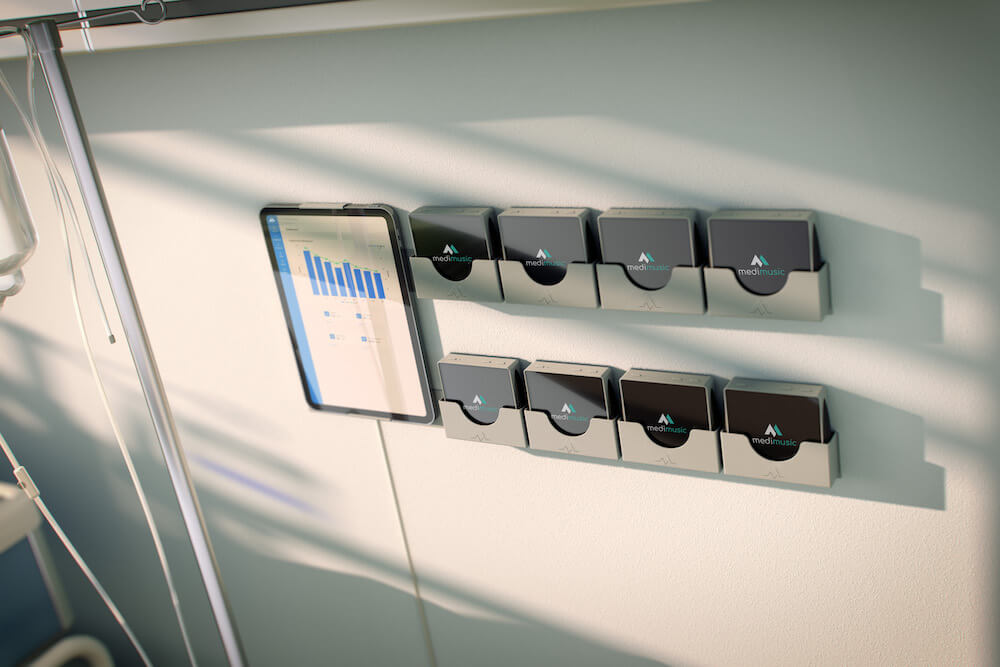Our MediBeat music player* and modular bio feedback units are designed to optimise the benefit of MediMusic.
If using a wearable to measure Heart Rate Variability, our Digital Drip component dynamically monitors a listener’s response to the music and if the HRV is not as we predict subsequent tracks are swapped out to bring the heart rate down faster or in slower steps depending on use case.

